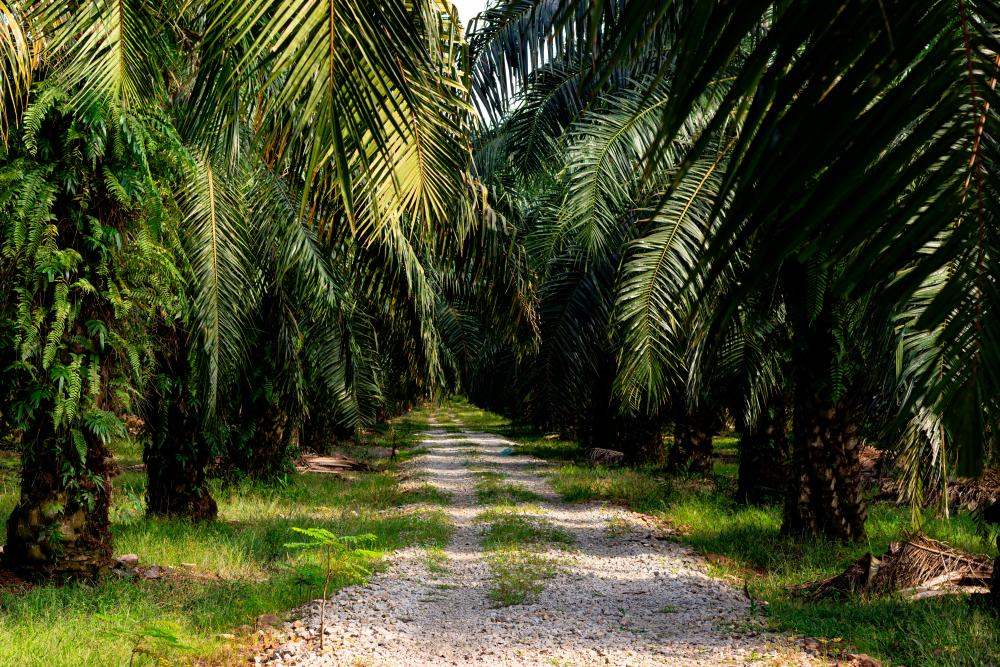THE first annual conference I attended at Sime Darby Berhad was in Penang, an event I had been looking forward to. However, I already suspected there would be some people I would not like and the three days were not going to be a holiday.
In some way, I had not fully settled into the company on the plantations side. I had a few friends who were fine but after joining the group, I sensed some quiet questions about what role I would play and whether I might get in their way in the future.
Few knew what I was doing as I was often working away on projects that planters typically did not handle, with frequent travels to places like Indonesia, where oil palm plantations were a new investment opportunity in 1990.
The heads of units, led by CEO Tunku Ahmad Tunku Yahya, were seated at the main table during dinner at the Equatorial Hotel. The atmosphere was formal, with all present aware of their pecking order, and no one crossed that line.
The next morning, the group broke up into their own units, with Ken Eales heading the plantations division.
He made his keynote address about the value of integrity and stating that while mistakes were acceptable, Sime Darby Plantations would not condone any wrongdoing.
Each department head made their presentation, starting with the director of estates. The plantations division was doing well, benefiting from favourable selling prices that exceeded production costs.
However, two departments were in trouble. One was the gloves and condom business, which had to struggle to gain entry into the big markets and was currently operating at a loss.
Before the second department that was in trouble gave its briefing, I had the chance during the break to tour the island with a colleague who knew Penang. He took me to see the farms in Balik Pulau, where we passed durian trees in full season, their ripe fruits caught in nets that hung like hammocks to catch those that fell.
When I got back to the hotel, there was still time to see Muhamed Sulaiman, the head of Sime Darby’s properties division, organising a durian feast near the car park. He invited everyone to join in, often the centre of activities. He could afford to buy a lot of durians.
I had heard that Muhamed owned stocks in a foreign company that wanted him to be a local shareholder before he left Malacca, where he had worked for Dunlop Estates. Now, he no longer had to rely on his Sime Darby salary to enjoy a good life.
I noticed that the person closest to Muhamed, Tan Tee Yong, a tall, quiet figure and a mill engineer from their Dunlop days, was helping with the work. Although he did not speak much in the group, most people knew he had Muhamed’s ear.
After lunch, I attended the next briefing, which was about the refining business. It was struggling with low margins. The Kempas Edible Oil refinery in Pasir Gudang refined palm kernel oil to make specialty fats for biscuit and bread makers while also processing palm oil for bulk export.
Some of the sales were sent to its sister refinery, Edible Products Limited in Jurong, Singapore, to be packed and branded for the cooking oil market. There, the refinery also refined, packed and branded cooking oils from soya, sunflower, corn and groundnut.
I sat back, and when the profit figures came out on the screen, I could not help but laugh to myself. My consulting department was making more money than they were and with fewer assets. Both refineries had fierce competition, and the margins were slim. It was certainly not a business that I would like to go into.
Finally, weeks later, the announcement was made that Muhamed would succeed Eales, confirming the rumours. At the time, I was away at Oxford University’s Templeton College, doing the Advanced Management Programme, a course that went on for several weeks. It was a last gesture by Eales before he retired when he approved my application to join the course.
The course took place during a beautiful summer in 1990, with trees in full foliage around the buildings. The days were packed with case studies and I found myself reading late into the night to prepare for group discussions and presentations the next morning. But in addition to that, I had to cope with two big news.
The first devastating news was that Iraq
had invaded Kuwait oilfields. It grabbed the attention of many in the class. Stock markets plunged around the globe, and those wealthier than me were likely losing sleep over it. I noticed one or two people with bags under their eyes at breakfast the next morning.
The second piece of news was that Mohamed had held his first meeting with the heads of departments. I received reports about it, and it was a grim occasion. He had slammed everyone in the room, demanding they improve their performance, and made it clear he would fire anyone who did not measure up.
Clearly, Mohamed had prepared what he wanted to say and I was told about it word for word. Sitting close to him was a new team member, Tan, who did not say a thing.
After the course, I cancelled spending any more days in Europe. When I returned to work, Muhamed was waiting for me in his office. I already knew what he was going to say, and sure enough, it was a replay. I waited for the lecture to end but he was clearly upset.
“You may not last in that department. I will be watching you and may take you out of it. You are enjoying yourself too much. You are flying everywhere.”
I left in silence, knowing someone had put that idea in his head, and I guessed who that might be.
Mahbob Abdullah has extensive experience in the management of oil palm plantations. Comments: letters@thesundaily.com









